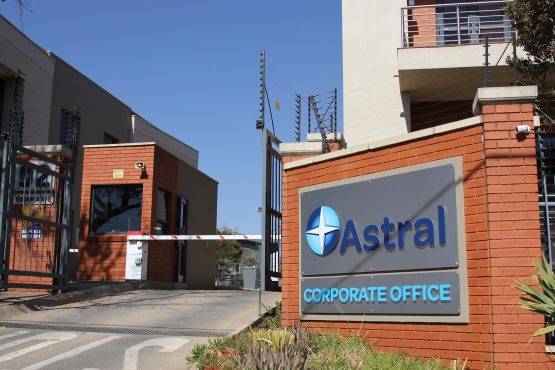Explore Astral Foods’ latest fiscal year results, marked by their first-ever annual loss. Discover the challenges they faced, including rising costs, avian influenza, and power supply issues. Learn how this South African poultry company navigated these obstacles and its impact on their operations and profitability.
Astral Foods’ Historic Annual Loss: Unveiling the Challenges Faced
In a historic turn of events, Astral Foods, the prominent South African poultry company, has reported its first-ever annual loss in the fiscal year. This significant development is attributed to a combination of factors, including rising operational costs, the outbreak of avian influenza, and challenges related to power and water supply.
Astral Foods CEO, Chris Schutte, described these results as a reflection of the numerous hurdles the company faced during the past year. Load shedding, which led to increased operating expenses such as generator operation, and the financial impact of dealing with avian influenza were the primary contributors to the decline in earnings for 2023.

Despite these formidable challenges, the company managed to maintain its overall revenue at just a 0.4% decrease compared to the previous year, reaching slightly over 19.25 billion rand (ZAR; US$1.05 billion). However, Astral Foods reported an operating loss of nearly ZAR621 million for the 2023 fiscal year, a stark contrast to the profit of nearly ZAR1.44 billion achieved in the preceding year. This shift resulted in a negative operating margin of 3.2%, compared to a positive 7.4% margin the previous year.
Earnings per share plummeted by 148% compared to the previous year, leading to the decision not to declare any dividends.
Astral Foods’ Poultry Division, which contributed 82% to the total external revenue, faced significant challenges as well. Revenue for this division in 2023 was 0.8% lower than the comparable period, with reduced broiler sales and less favorable product mix. Frequent power outages due to load shedding disrupted processing plants, leading to delays in slaughter schedules and heavier chickens. While the number of broilers slaughtered decreased by 15%, the total live weight slaughtered was only 4% lower. However, sales volume declined by 9.6% due to the heavier birds and adverse trading conditions throughout the fiscal year.

Rising Costs and Avian Influenza: Astral Foods’ Year of Challenges
The company reported that load shedding and avian influenza had a considerable impact on their costs, with feed costs increasing by over 15% compared to the 2022 financial year. Exceptional expenses associated with load shedding amounted to approximately ZAR1.62 billion, and interruptions to the water supply added another ZAR31 million to the division’s costs. Consequently, Astral Foods’ Poultry Division reported an operating loss of ZAR1.38 billion for the past year, in stark contrast to the ZAR802 million profit recorded in the previous 12 months.
The outbreak of highly pathogenic avian influenza (HPAI) also significantly affected Astral Foods’ Poultry Division. A new strain, H7N6, emerged in July, causing widespread devastation and losses in the South African poultry sector. Astral, with its broiler breeding operations in affected areas, had to cull over one million birds infected by the aggressive virus strain, incurring costs of approximately ZAR400 million by the end of the financial year. Astral’s management advocated for poultry vaccination against such strains, as South African poultry farmers did not receive financial compensation from the government for culling birds as a disease control measure.
Archived: Will South Africa Run Out of Chicken and Eggs Amidst a Bird Flu
In contrast to its Poultry Division, Astral Foods’ animal feed business experienced higher revenue, driven mainly by increased raw material costs. Internal feed use grew due to load shedding and backlog issues, but external feed sales dropped almost 11% due to pressures on the egg and pig sectors. Direct costs of load shedding for the feed business were estimated at ZAR31 million over the past year. However, the division reported a 21.5% year-on-year increase in operating profit, amounting to ZAR759 million, resulting in a slight uptick in operating margin to 6.5% for the 2023 fiscal year.

Strong Growth in Zambia Operations Lifts Astral Foods
On a positive note, Astral Foods reported improved financial performance for its operations in Zambia, particularly for its poultry affiliate, Tiger Chicks, and Tiger Animal Feeds. These segments achieved consistent growth and profitability over the year to September.
Astral Foods, with annual slaughterings of approximately 290 million head, is not only the largest poultry company in South Africa but also the largest on the entire African continent. Apart from its poultry operations, the company is involved in animal feed manufacturing, broiler genetics, day-old chick and hatching egg production and sale, integrated breeder and broiler production, slaughterhouses, and the distribution of various poultry brands. It also maintains poultry and feed operations in Zambia.
Sources include: Wattagnet


